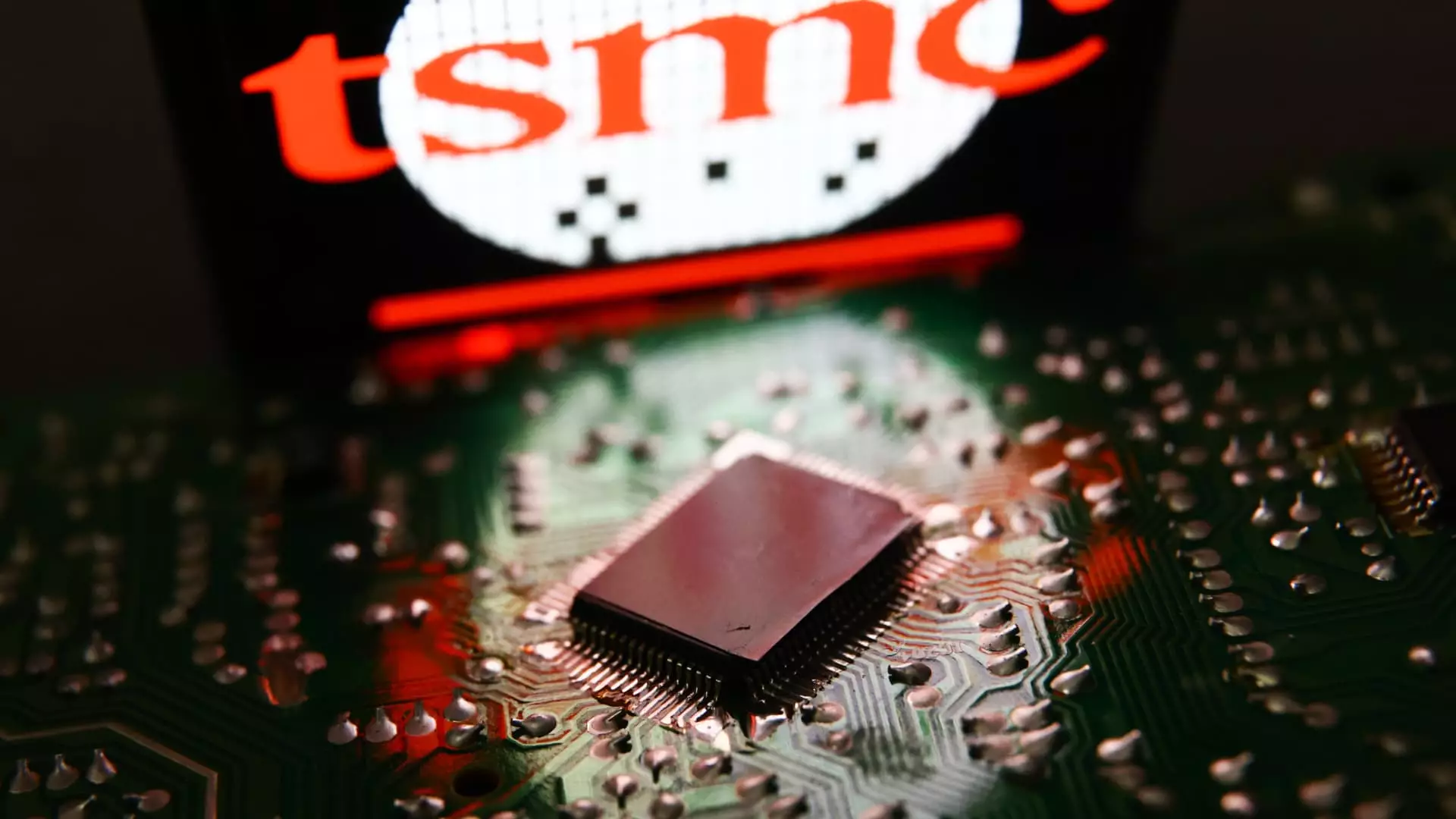In a significant move that underscores rising tensions in U.S.-China trade relations, the United States government has directed Taiwan Semiconductor Manufacturing Co. (TSMC) to cease shipments of sophisticated semiconductor technologies to Chinese clients. This directive, effective immediately, pertains particularly to advanced chips integral to artificial intelligence (AI) applications. The decision has sparked considerable debate and concerns surrounding the geopolitical landscape and the potential repercussions on technological advancements in both regions.
The U.S. Department of Commerce’s decision to impose export controls on advanced chips stems from security concerns related to the Chinese telecommunications giant Huawei. Recent revelations pointed to the presence of a TSMC chip in a Huawei AI processor, which triggered alarms about potential violations of export regulations. With Huawei being a designated entity restricting U.S. exports, the implications of this discovery prompted heightened scrutiny over the export practices of semiconductor manufacturers. TSMC, notable for its position as one of the world’s largest contract chipmakers, finds itself at the nexus of these complex dynamics, tasked with balancing compliance amidst pressures from the U.S. government and its sizeable Chinese clientele.
Following the communication from the Department of Commerce, TSMC took immediate action to inform its clients of the suspension of shipments of chips featuring 7-nanometer technology or more advanced designs to companies in China. This decision carries profound implications not only for TSMC’s operations but also for its customers, many of whom rely heavily on these advanced chips for various applications, including AI and graphics processing. The suspension means that businesses in China, including prominent chip designers, face potential setbacks in their technology endeavors, thus stifling innovation on a broader scale.
TSMC has maintained a public stance of compliance, citing its commitment to abiding by U.S. laws and regulations. Nonetheless, the company operates in a tumultuous environment, navigating the complex landscape of international trade regulations, which are often subject to rapid changes based on geopolitical developments.
This directive from the U.S. is part of a larger pattern of tightening export controls on sensitive technologies to China. Both Republican and Democratic lawmakers have increasingly expressed concerns surrounding the U.S.’s ability to manage the challenges posed by China’s technological advancements. Previous actions have included restrictions targeting notable companies in the tech industry, such as Nvidia and AMD, designed to hinder their access to the Chinese market.
Such measures have reportedly stemmed from fears that China could leverage advanced technologies for military purposes, thus justifying the stringent regulatory environment. The ongoing push for updated regulations indicates that the U.S. government is aware of the critical need to adapt to fast-evolving tech landscapes, particularly as it pertains to AI and semiconductors.
The recent export restrictions raise critical questions about the future of technological collaboration and competition between the U.S. and China. The fallout from these regulations may lead to a significant slowdown in the pace of advancements in AI technologies, particularly in China, where reliance on advanced semiconductor manufacturing is paramount.
As the U.S. seeks to solidify its position regarding technological dominance, it must balance ethical concerns, competitive advantage, and compliance with international trade standards. The tension between fostering innovation and ensuring national security will continue to shape the narrative surrounding U.S.-China relations moving forward.
In light of these developments, industry observers will be monitoring how TSMC and other semiconductor manufacturers respond to these limitations, particularly as new rules and restrictions are anticipated to emerge from the U.S. government. Ultimately, the interplay between regulatory measures and technological advancement will prove pivotal in defining the future landscape of global semiconductor production and its applications in AI and beyond.


Leave a Reply